SUMMARY
This is AI generated summarization, which may have errors. For context, always refer to the full article.
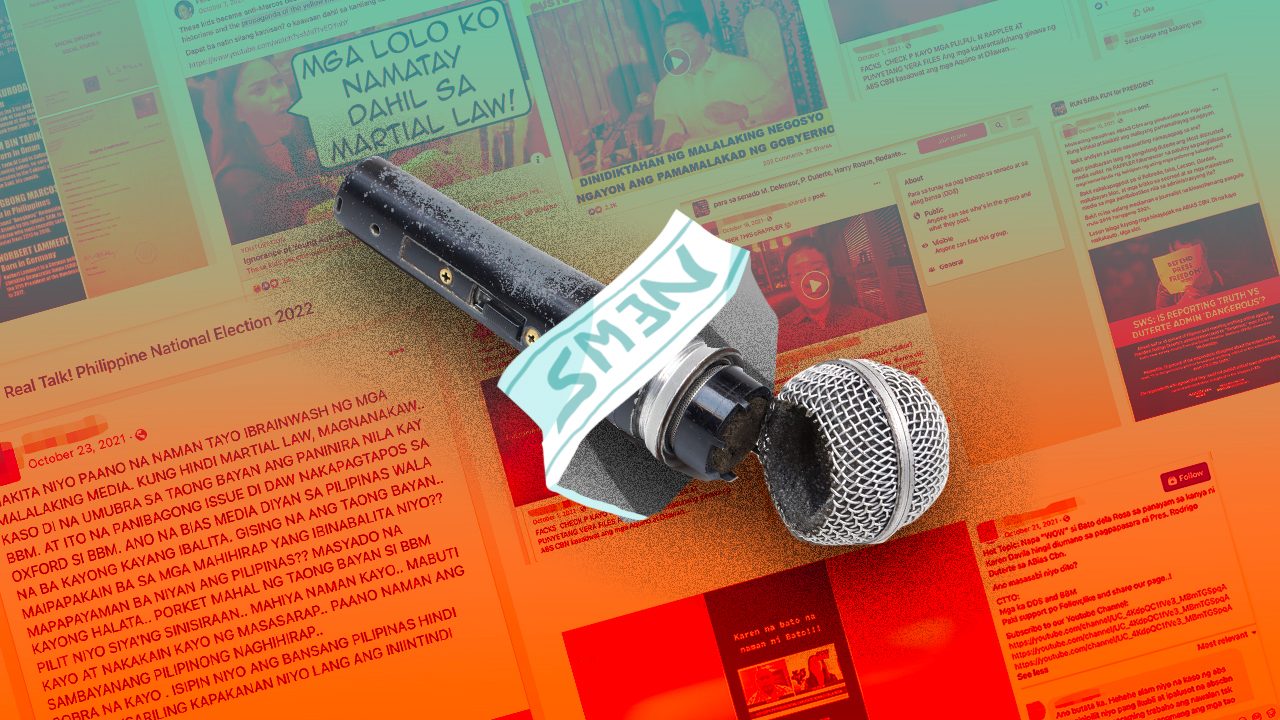
This story was made in collaboration with data consultancy TheNerve.
MANILA, Philippines – As independent media in the Philippines started reporting about the upcoming 2022 elections, online attacks targeting journalists also ramped up in 2021.
Rappler’s analysis of big data showed that social media posts calling journalists derogatory terms such as “bayaran” (paid hacks) and “presstitute” (a portmanteau of “press” and “prostitute”), among others, increased in the second half of 2021.
The repetitive push of narratives on social media that painted the free press as “biased” against political figures, particularly the Marcos family and the Duterte administration, were meant to undermine the public’s trust in the media.
The attacks often contained false information that aimed to diminish media’s credibility and publicly shame them for doing their job of providing checks and balances vis-a-vis the three branches of government.
Both President Rodrigo Duterte and the Marcos family have a history of accusing members of the Philippine media of unfairness for simply reporting critically about them. Duterte was named one of the 37 global leaders in Reporters Without Borders’ gallery of “press freedom predators” in 2021, while the camp of presidential aspirant Ferdinand “Bongbong” Marcos Jr. recently explained his refusal to be interviewed by veteran journalist Jessica Soho by accusing her of being “biased against the Marcoses.” (READ: Biased? GMA tells Marcos camp Jessica Soho’s questions ‘tough’ like the presidency)
The elections in May 2022 will be the second presidential election in which the outcome will be determined, to a large extent, by public conversations and information operations on social media. The 2016 elections proved how social media can play a crucial factor in electing public officials.
“The real objective of disinformation is to occupy our attention and weaken our capacity to tell true from false, right from wrong,” Rappler columnist and editorial consultant John Nery said during the launch of #FactsFirstPH, a coalition of groups that seeks to promote truth and fight disinformation as the Philippines gears up for the 2022 elections.
Marcos, Duterte supporters are top sources of attacks
Rappler scanned public posts on Facebook from January 1, 2021, to October 31, 2021, to track incidents of attacks on journalists. The scan sought posts containing keywords commonly used to harass or malign journalists. These included “presstitute,” “bayaran,” and “fake news,” among others. The keywords used belonged to a collection of attack words Rappler has collected over years of monitoring online attacks against the press.
The scan also included generic attack keywords such as curse words, but only posts that also mentioned names of news organizations and journalists were included.
The scan detected plenty of posts containing attack words directed at Philippine journalists throughout 2021, but the 14-day rolling average of these posts ramped up in the second half of the year. It particularly spiked in October, the month when aspirants filed their certificates of candidacy (COC) for the 2022 elections.
Many of the posts that attacked journalists and media organizations in October 2021 came from supporters of the Marcos family and the Duterte administration.
The pages that shared the most number of posts attacking the media in October 2021 were the following:
- Bagong Lipunan
- Ferdinand E. Marcos
- Team Philippines
- Duterte News Info Live
- Tunay na Pagbabago
- DDS News TV
- Duterte News Info
- Pres. Ferdinand Emmanuel E. Marcos (taken down by Facebook, as of January 28, 2022)
- Support for Chief Justice Renato Corona
- We Love Marcos Family
Meanwhile, the top Facebook groups were:
- PRESIDENT RODRIGO DUTERTE INTERNATIONAL MOVEMENT (made private as of January 28)
- Bongbong Marcos for President Movement
- Bongbong Marcos-Imee Marcos sa 2022 Tunay na walang bahid Dilaw
- PRESIDENT DUTERTE SOLID FB SUPPORTERS INTERNATIONAL (made private as of January 28)
- PRO-GOVERNMENT
- APO LAKAY BONG BONG MARCOS PILIPINAS SOLID GROUP..ALBBMPSG 2022..
- DU30 – We Need You
- Marcos – Duterte Solid Supporters
- MARCOS LEGACY
- PROTECT THE PRESIDENT DUTERTE
- THE DDS WORLD (DUTERTE)
Posts that called for the Marcoses’ return to Malacañang often tagged the Philippine mainstream media as “paid” or “yellow” (a color associated with the Aquino political family) to imply biased reporting against the Marcoses. These posts also repeated the false historical narratives pushed by the Marcos propaganda network, which sought to alter public perception of the Marcoses by either downplaying or outrightly denying corruption and human rights violations during the Martial Law years, and by exaggerating Marcos achievements.

A common theme was to put the blame on the “yellow media” for supposedly ruining the image of the Marcoses. Yellow implies partiality for the Liberal Party and the Aquino family, who use the color as signature campaign symbol. This is despite the fact that the Marcos family’s abuse of power has been well-documented both by the local and international press.
It was also in late October 2021 when the controversy around Marcos’ education at Oxford University resurfaced. Marcos had repeatedly claimed that he obtained a degree from the university, but a 2015 Rappler investigation showed that he only got a special diploma that is not equivalent to a degree. The posts defending Marcos ranged from falsely saying that he graduated to downplaying the implications of Marcos’s lies about his education.
Other news organizations reported on the issue, too, as it continued to blow on social media. Among the local media outlets that published reports were ABS-CBN, Inquirer.net, Philippine Star, and GMA News. The controversy became so big that even international news outlets such as Bloomberg and Thetimes.co.uk reported on it.
However, the posts defending Marcos’ lies accused the media of “brainwashing” the public, despite the facts and documents provided in the reports.

October 2021 recorded the fourth-highest volume and 14-day rolling average of posts containing attacks against journalists since 2016. This is just behind the months of April to May 2020, when broadcast network ABS-CBN was shut down; July 2020, when a House committee rejected the bills seeking to grant the network a fresh franchise; and February 2020, when the Senate held a hearing on ABS-CBN’s franchise renewal.
Favorite targets of partisan accounts
Rappler and ABS-CBN were the top news organizations mentioned in posts that contained keywords attacking the media in October 2021, usually with claims that the two news outfits’ coverage of the campaign for 2022 was biased. These accusations, again, mostly came from the supporter base of the Marcos family, as well as candidates allied with the Duterte administration.

The posts against ABS-CBN also often justified the shutting down of the network and wished for them to never go back on air.
Many posts went beyond maligning the news organizations by targeting individual journalists directly. The journalists attacked the most during the same period were Rappler CEO Maria Ressa and ABS-CBN news anchor and talk show host Karen Davila.
The common accusations hurled at them: “liars,” “biased,” and “yellow.” There were also baseless claims that these journalists were mocked, shamed, or blocked by Duterte and other administration personalities – in an attempt to make them look stupid.
Three days after the Nobel Peace Prize committee announced that Ressa won the prestigious award in October, Senator Ronald “Bato” Dela Rosa told reporters in an interview that he personally thought that the committee was wrong for choosing Ressa. A YouTube video claiming that Ressa was “shamed” (pahiya) and “lambasted” (binanatan) by Dela Rosa quickly spread on Facebook. In reality, many other lawmakers lauded the historical feat achieved by Ressa.

This strategy was also used by pro-administration accounts to attack Davila. A clip of Davila’s interview with Dela Rosa in an episode on ANC’s Headstart was spread on Facebook, where she asked him questions about the state of press freedom in the country. The senator visibly lost his cool during the interview, but the captions spread on Facebook claimed that Davila was “silenced” (supalpal) by the senator.

Dela Rosa had filed his COC for president under the Partido Demokratiko Pilipino-Lakas ng Bayan (PDP-Laban), Duterte’s political party, when the interview took place. He later withdrew his candidacy in November 2021. In both instances, he claimed to be following what the party’s interests dictated.
DDoS: a new attack pattern
The attacks against Filipino journalists in 2021 went beyond social media.
Several news organizations, including Rappler, were targeted by intense Denial of Service (DDoS) attacks in December 2021. A DDoS is a malicious attempt to bring down a website by flooding it with an overwhelming amount of simulated traffic.
In a span of a week, three news outlets were hit by DDoS attacks that caused their websites to be inaccessible for hours. First to be attacked was ABS-CBN News on December 11, followed by Rappler on December 15, then Vera Files on December 16. Roughly a week later, Rappler was again hit by a more intense DDoS attack on December 23.
Tord Lundström, technical director at the Sweden-based digital forensics nonprofit Qurium Media, said that patterns derived from a comparative analysis of the attack logs from the servers of the three news websites indicated that the perpetrators repurposed infrastructure used in search engine optimization for attacking purposes.
Attackers have continued to attack Rappler in 2022 using DDoS, with the latest offensive recorded on Thursday, January 27.
ABS-CBN, Rappler, and Vera Files are all known for critical reporting that has caught the ire of the Duterte administration. Both Vera Files and Rappler are third-party fact check partners of Facebook – an initiative that is often demonized by both Marcos and Duterte administration supporters.
The successive DDoS attacks on ABS-CBN, Rappler, and Vera Files in December 2021 were the first time that major Philippine news outlets were attacked in succeeding days.
Before this, progressive news organizations Pinoy Weekly, Bulatlat, Kodao Productions, and AlterMidya – People’s Alternative Media Network had all weathered DDoS attacks since 2018. Qurium Media traced one incident to the Philippine government and military, which was denied by the government. (READ: Military, DOST links found in DDoS attacks on media – report)
Protecting freedom of the press
Facebook updated its policy on bullying and harassment in October 2021 to protect journalists, human rights defenders, and other “involuntary public figures.” Antigone Davis, global head of safety at Facebook, announced that the company “will now remove coordinated efforts of mass harassment that target individuals at heightened risk of offline harm.”
As “involuntary public figures,” journalists were granted protections from harmful content. Before this, the company did not remove content that attacked journalists unless they were directly tagged in the post.
However, persistent harassment of journalists and media organizations online remains a critical concern. A 2021 report from the International Center for Journalists (ICFJ) that conducted a big data case study on the online attacks against Ressa said that Facebook was the “main vector” for the online violence Ressa faces.
Ressa has been harassed on Twitter, too. Rappler documented attacks directed at Ressa in late December 2021 from newly-created pro-Marcos Twitter accounts. (READ: Marcos network tries to take over Twitter with freshly-made accounts)
“Both Facebook and Twitter have promised to address the attacks on Ressa, but Facebook has failed dismally to effectively stem the tide of hate against her,” the ICFJ report said.
A related study by the Philippine Media Monitoring Lab presented on Wednesday, January 26, looked at the behavior of users on Facebook in relation to the 2022 elections. It found that many accounts supporting the Marcoses and the Dutertes often attack members of the media, and said that the platforms needed to develop better mechanisms to detect suspected inauthentic coordinated behavior in its early stages. (READ: Pro-Duterte, Marcos FB accounts often attack election rivals – study)
“Facebook takedowns of inauthentic coordinated behavior are too late in minimizing social harm and averting political damage, and too little in effectively deterring abuse and manipulative behavior in the platform,” the study said.
The repetitive attacks on the press online have severely affected public trust in journalists at a time when they are most needed to provide information that will help the public make informed decisions and check abuse of power.
The Philippine Bar Association, the oldest voluntary national organization of lawyers in the Philippines, acknowledged this role of the press. It offered legal assistance to journalists facing libel cases filed by Energy Secretary Alfonso Cusi, Duterte’s trusted ally.
The lawyers‘ group said in a statement in December 2021: “We rely on our press to always search for the truth. We ask our journalists to keep writing facts. But their ability to do so remains only insofar that they themselves are free – free from fear, free from harassment. If we want them to remain ‘free,’ then we must do our part to keep them that way.”
Media organizations build their credibility by heeding ethical and journalistic standards. It is the job of any credible news outfit to inform the public on the issues they need to know, hold public figures accountable by exposing corruption and fact-checking their statements, and investigate issues that are critical to public safety. Credible news organizations also practice accountability by being able to admit and apologize for the mistakes they make through a transparent corrections policy.
As Rappler‘s Ressa often say, if insidious tactics on social media continue to break down public trust in the independent press, there will be no integrity of facts. If there is no integrity of facts, how can there be integrity of elections? – with reports from Gemma B. Mendoza, Don Kevin Hapal, Dylan Salcedo, Gaby Baizas, Loreben Tuquero/Rappler.com
This study was made in collaboration with TheNerve, a Manila-based consultancy that specializes in analyzing data to bring forth powerful insights and narratives. Believing that data can deliver real-world impact, the company enables its partners across a wide range of industries to cut through the clutter and extract value and meaning from various datasets. The insights guide partners’ business decisions and help them engage with their communities better. Composed of a team of data scientists, business strategists, award-winning storytellers, and designers, the company is on a mission to transform data science into data relevance.
Add a comment
How does this make you feel?
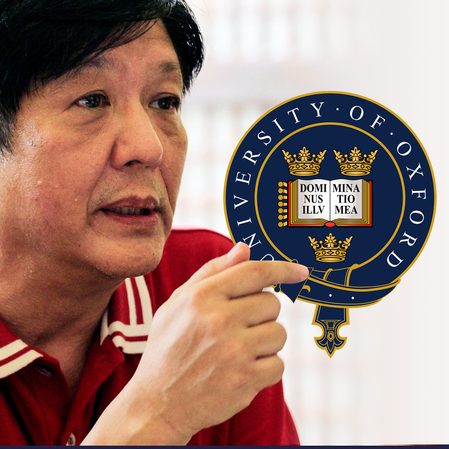


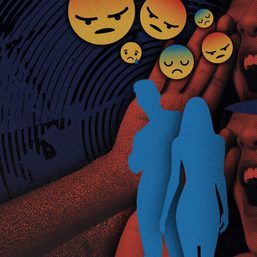

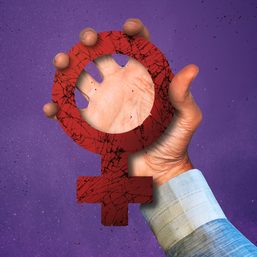
![[ANALYSIS] Cybermisogyny violates human rights](https://www.rappler.com/tachyon/2022/06/Cyber-misogyny-human-rights.jpeg?resize=257%2C257&crop_strategy=attention)
![[ANALYSIS] Building Narratives: stories of greatness and windmills in Marcos Jr.’s campaign video](https://www.rappler.com/tachyon/2022/05/Narratives-marcos-windmills-May-18-2022.jpg?resize=257%2C257&crop_strategy=attention)


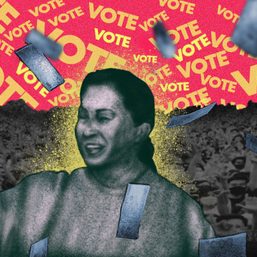

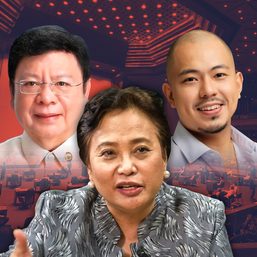




![[New School] Tama na kayo](https://www.rappler.com/tachyon/2024/02/new-school-tama-na-kayo-feb-6-2024.jpg?resize=257%2C257&crop=290px%2C0px%2C720px%2C720px)







![[OPINION] You don’t always need a journalism degree to be a journalist](https://www.rappler.com/tachyon/2024/06/jed-harme-fellowship-essay-june-19-2024.jpg?resize=257%2C257&crop=287px%2C0px%2C720px%2C720px)







![[Just Saying] Ted Failon, press freedom, and the Supreme Court](https://www.rappler.com/tachyon/2024/07/20240709-ted-failon-press-freedom-supreme-court.jpg?resize=257%2C257&crop=296px%2C0px%2C720px%2C720px)

There are no comments yet. Add your comment to start the conversation.